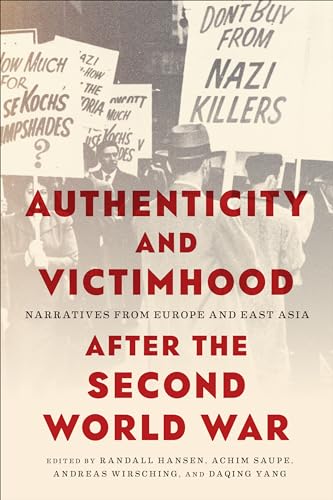
Authenticity and Victimhood after the Second World War
by Randall Hansen
"Narratives from Europe and East Asia"
Popularity
1.46 / 5
* A book's popularity is determined by how it compares to all other books on this website.
Where to buy?
Buy from Amazon* If you buy this book through the link above, we may receive a small commission at no extra cost to you.
Authenticity and Victimhood after the Second World War by Randall Hansen
Details
War:
World War II
Perspective:
Researcher
Biography:
No
Region:
Europe
Page Count:
357
Published Date:
2021
ISBN13:
9781487528218
Description
Main Themes and Topics
The book Authenticity and Victimhood after the Second World War by Randall Hansen delves into the intricate and often challenging subjects of memory, identity, and the aftermath of conflict. This edited collection focuses on the profound impact of genocide, civilian casualties, and other atrocities in the post-World War II era. It examines how these events have been remembered and how they shape contemporary understandings of authenticity and victimhood. A significant theme running through the work is the exploration of how different communities process these traumatic experiences and the role of collective memory in shaping historical narratives.
Writing Style and Tone
Randall Hansen's approach in compiling this collection is both scholarly and accessible. The tone is respectful and empathetic towards the sensitive subjects it covers. The contributions in the book are crafted with a balance of academic rigor and human insight, making complex histories approachable for a broad audience. Although the book addresses grave topics, the writing is clear and engaging, facilitating a deeper understanding of the post-war experiences it discusses.
Brief Summary
Authenticity and Victimhood after the Second World War offers a comprehensive examination of the memories and experiences of those affected by the atrocities that followed the end of the Second World War. Through a series of essays, the collection highlights personal and collective narratives of genocide and civilian suffering. It investigates how these experiences have been preserved in cultural memory and how they continue to influence modern discussions about identity and victimhood. The book serves as a crucial resource for those seeking to understand the enduring impacts of historical trauma on society.









